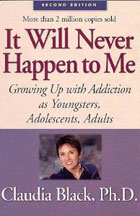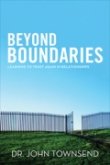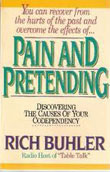| Russian | Ukrainian | |||||||

Home
Adult children (10) Boundaries (8) Codependency (9) Compulsive behavior (8) Dating and relationships (2) Depression (13) Divorce recovery (4) Dysfunctional family (11) Emotional problems (18) Forgiveness (7) Inner pain, struggle (11) Isolation, loneliness (13) Responsibility (8) Trust issues (8) Professional help, counseling and therapy for ACDF, ACOA and ASCAIn a healthy family the attention of both parents is focused on the progressive development of the children. In a dysfunctional or abusive family (alcoholism, drug addiction, aggressor, rigid parent, etc) efforts are selfishly focused on the needs of the dependent person often resulting with the children having personal boundaries constantly violated. As the children grow up these traumas can cause serious consequences for the adult survivors of that quite literally poisoned family environment. ACOA (Adult Children of Alcoholics), ACDF (Adult Children of Dysfunctional Families) and ASCA (Adult Survivors of Child Abuse) are acquired syndromes that shape patterns of human behavior, and can continue to manifest for the entire life of the affected individual. The negative affects of an abusive childhood formed because of abnormal family relationships and distorted signals, received from parent(s) can result in prejudism and altered life values. This way of thinking can affect a person's life entirely and lead to many further mistakes and wrong choices, causing pain and sometimes destruction to the person and/or to other people around them. Patterns of behavior of ACDF/ACOA can be recognized by roles of the dysfunctional family. Children of ACDF/ACOA learn quickly and are usually naturally good students, but it in a dysfunctional family they learn to believe the wrong things. Some of these beliefs are just lie, some are dangerous or self-harming, some display hurt. These are conditioned responses that have been adapted to cope with abuse. Here are some examples of what children of ACDF/ACOA consider normal:
Children in abusive relationships did not have the opportunity to learn in the same way as children in healthy families. Many of them do not know that they have rights, can joke and play, how to protect themselves, how to say no and how to feel safe. They are looking for themselves anywhere, but not at home, because they "lost" their identity, "lost their own self". This can lead to taking drugs, abusing alcohol, promiscuity, commiting crimes, etc - to ease inner pain and memories. We have to know and remember that a dysfunctional family environment makes children mature prematurely. These children have had their childhood taken away. In reality, they are adult children. Even though they may look like adults, they may ofter display childish behavior. It is important to understand this without rushing to condemn them. They are very susceptible to the influence of others on their own world-view, self-perception, happiness and self-esteem. To stop progression of these syndromes ACDF/ACOA need help. Help and care, which will lead to freedom from lies, from having to remain silent about family abuse. To be able to bring the truth of the past to the light and to use the these experiences to help themselves and others. The past cannot be changed and we cannot choose our parents, but help can be found. If you are an adult child of an alcoholic or an adult child of a dysfunctional family do not be ashamed to ask for help and do not let your past control your future. I wish you to have life and have it abundantly.
As you may already know, therapy or healing journeys in many cases include attending support groups and professional counseling. Below we'll try to build a list of possible reading and contacts for these purposes. Read books for ACOA/ACDF issues by Edward T. Welch "What is Good Christian Therapy" - article by Dr. John Townsend Erik Bohlin (USA, WA) Churches: Marriage Conference by Paul Tripp (English/Russian) |


